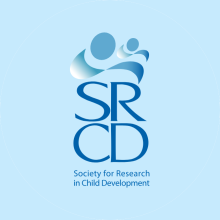July 2010 Spotlight on the SRCD Policy Fellow: Binta Beard, Ph.D.
2009-2010 Federal Congressional Policy Fellow
Until September of 2009 I, like most Americans, had never come to the House of Representatives or the Senate to visit my members of Congress. Like many people in my discipline of public health, I followed the news, attended public health conferences, collaborated on health interventions, and wrote papers articulating the policy implications of research findings related to topics such as childhood obesity, but I had never sat with Congressional staff to discuss these issues. Over the past eleven months as a Congressional Fellow working as a health legislative assistant for Congressman Edward J. Markey (D-MA), I have had the remarkably unique opportunity to cross a bridge connecting me to the nexus of health research, policy, and politics.
I have been amazingly fortunate to work on the Hill as Congress was endeavoring to successfully pass comprehensive health care reform. My first months of the fellowship were a whirlwind, during which I literally learned the House and Senate health reform bills, staffed two health care town halls in Massachusetts, and met with constituents and stakeholders to discuss health issues ranging from medical devices to cystic fibrosis.
This experience has left me with a sincere appreciation for Congressman Markey and his incredible and knowledgeable staff working on policies that impact the daily life of Americans and people around the world. As a public health practitioner and scientist committed to advancing the health of children and underserved populations, this experience has imbued me with valuable lessons and insights on the role of science and empirical data in the legislative process. Whether working on appropriations, health reform, or any number of health issues, my job requires me to engage with a range of stakeholders including constituents, local and state industry, and interest groups, while simultaneously considering the short and long term implications of decisions and fulfilling a long agenda with limited fiscal resources. In each of these instances, I have been impressed by the vital importance and utilization of empirical data throughout this process and by my collaborations with members of the scientific community to inform the process.
Numbers, data, and empirical examples serve as powerful tools to inspire a policy agenda, rally support or opposition, bolster an argument, clarify misconceptions, and facilitate a more concrete understanding of an issue. A scientific expertise can be a valuable currency in the legislative process. Over my eleven months I have grown to appreciate some of the factors as a Congressional Fellow that facilitate and obstruct accessing this empirical information, and as a scientist I have gained a heightened understanding of how scientists can best develop, translate, and present our much needed expertise.
I thank the Society for Research in Child Development for providing the mortar and bricks, which created the bridge to this amazing experience. I look forward to continue working on health issues on Capitol Hill in a capacity where I apply my passion for public health, health policy, and the well-being of children, while building the specialized understanding of the legislative process, to support the creation of empirically sound policies that advance the needs of children and underserved populations.
